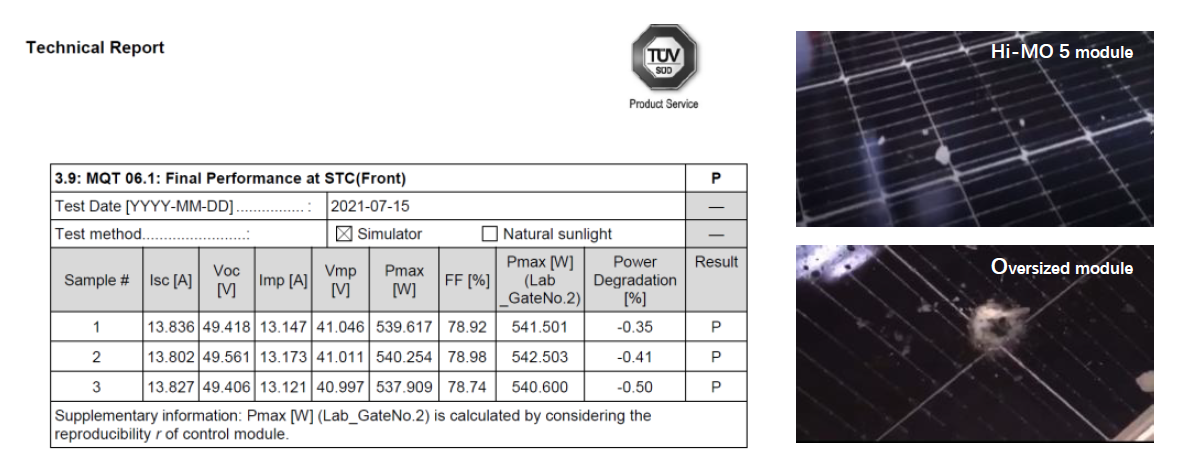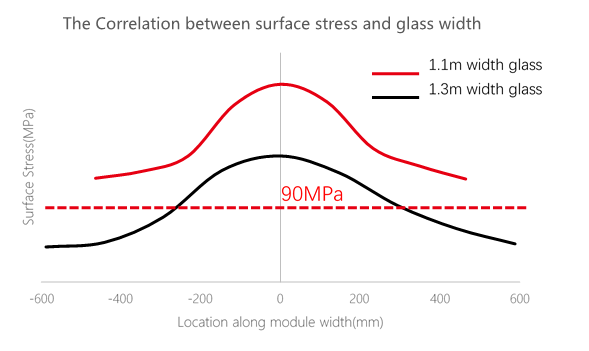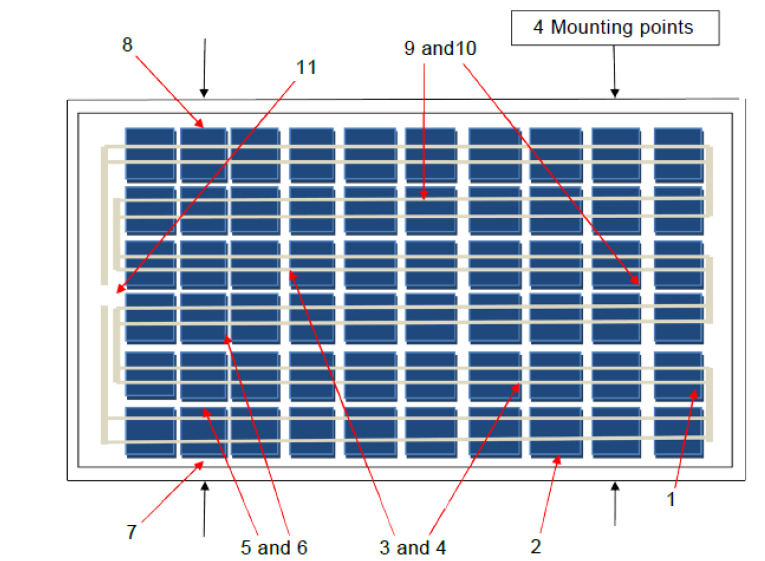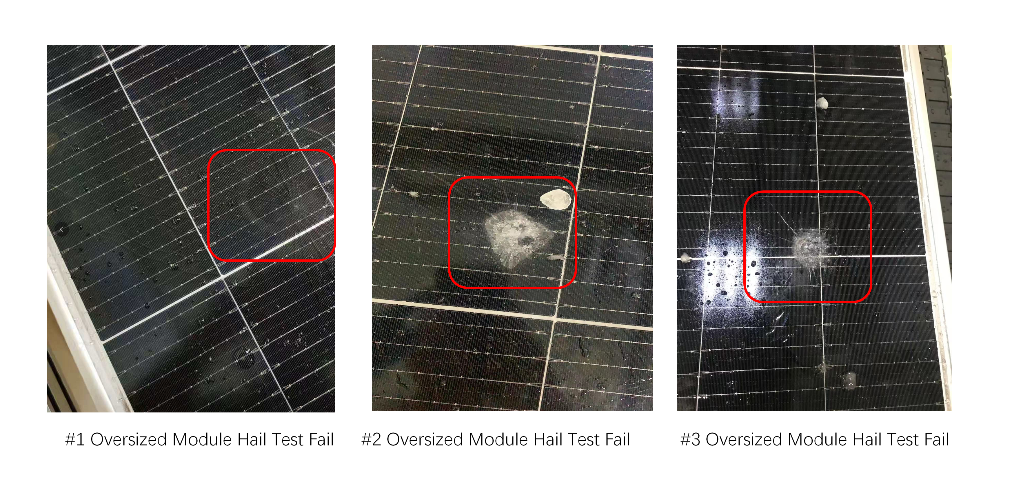A PV power plant not only delivers consistent green energy, but is also a significant financial investment over 25 years. From the financial viewpoint, return on investment and system reliability are both crucial.
A PV module needs to be able to operate in different types of extreme weather conditions and an infinite increase in its size has the potential to bring significant risk to power plants. Hail is a normal global meteorological phenomenon, meaning that analysis of the performance of different size modules in such conditions is increasingly important. LONGi has conducted new hail performance testing which indicates that, whereas its Hi-MO 5 module (based on a 182mm wafer with dimensions of 2256×1133mm, 2.56m2), is able to withstand testing, the oversized module (dimensions 2384×1303mm, 3.11m2) is unable to do so. A TÜV SÜD report has also demonstrated that Hi-MO 5 was successful in passing a 35mm hail impact test.

1. Technical Feature of PV Glass: The bigger the glass area, the less mechanical strength
The mechanical strength of PV glass is mainly affected by the temperature gradient in the tempered furnace. Because of the significant increase in width (1.3m) of an oversized module, it is more difficult to make the temperature homogenous for glass, meaning that the increase in glass width can result in a reduction in mechanical strength. The detailed surface stress of the tempered glass test result is shown in the following figure.

2. Analysis of hail impact testing: 100% failure rate of oversized module
In order to verify the technical features of PV tempered glass, several hail tests were conducted in laboratory conditions, with a hail diameter of 35mm and a speed of some 27m/s. 11 points were tested for each module type, as per the following figure.

The results indicated that all three oversized modules (3.11m2) failed the test, with a 100% failure rate and with a trend for edge breakage. This supports the view that a significant increase in module size can result in a decrease in mechanical strength, especially at the edge.

In summary, this article analyzes the hail impact test for different size modules and sets out the basic mechanism for testing. It was found that the mechanical strength of an oversized (3.11m2) module will decrease with the increase in glass width, all three modules of this type failing the hail impact test, unlike the 2.56m2 module, which was successful in testing. This may be an important consideration for investors in projects in areas prone to hail conditions, where module reliability assumes particular importance.
About LONGi
Founded in 2000, LONGi is committed to being the world’s leading solar technology company, focusing on customer-driven value creation for full scenario energy transformation.
Under its mission of 'making the best of solar energy to build a green world', LONGi has dedicated itself to technology innovation and established five business sectors, covering mono silicon wafers cells and modules, commercial & industrial distributed solar solutions, green energy solutions and hydrogen equipment. The company has honed its capabilities to provide green energy and has more recently, also embraced green hydrogen products and solutions to support global zero carbon development. www.longi.com